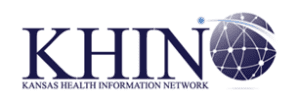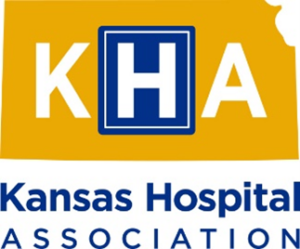Training and Learning Modules
Education is an important element when incorporating health equity into your organization and to ensure sustainability. We have curated high-value resources to train and educate your staff regarding the importance of health equity and addressing health disparities.
KFMC/Partner Webinars
- Addressing Transportation Challenges in Kansas — July 31, 2024, webinar co-hosted by KFMC Health Improvement Partners, the Kansas Hospital Association, and the Community Care Network of Kansas, highlights strategies used by communities across Kansas to tackle transportation challenges and provides information about Kansas Mobility Management, a public transportation strategy sponsored by the Kansas Department of Transportation
- Webinar Resources
- Addressing SDOH in Rural Kansas Communities — April 30, 2024, webinar co-hosted by KFMC Health Improvement Partners and Kansas Healthcare Collaborative (KHC), which includes CMS regulatory requirements, data collection, best practice examples of use of community health workers, and community funding
- Food Security in Kansas: Cross-sector Innovations — January 30, 2024, webinar co-hosted by KFMC Health Improvement Partners and the Kansas Office of Primary Care and Rural Health, a program of the Kansas Department of Health and Environment, which delves into the critical issue of food security in Kansas
- Webinar Resources
- Slide deck (PDF)
- Kansas Food Source
- Food Insecurity Map
- Feeding America
- [email protected]—Email to get access to food security statistics in Excel format
- Produce Storage Infographic (PDF) — American Heart Association
- Leah’s Pantry
- Webinar Resources
Infographics
Health Equity Infographics — Health Equity Institute, San Francisco State University
- Social Determinants of Health (SDOH) Data with ICD-10-CM Z Codes Infographic – This infographic explains how ICD-10-CM Z codes can help improve the collection of SDOH data. It also outlines ways that collection of SDOH data can improve equity in health care delivery and research. (PDF) — Centers for Medicare and Medicaid Services
- Visualizing Health Equity: One Size Does Not Fit All — Robert Wood Johnson Foundation
- The Economic Burden of Racial, Ethnic, and Educational Health Disparities in the United States, 2018 (PDF) — NIH National Institute on Minority Health and Health Disparities
Considered most valuable resource
Links to Webinars
Health Equity Webinars — Centers for Medicare and Medicaid Services
- Examining Best Practices for Equitable Maternal Care Replay — American Hospital Association
Considered most valuable resource
Training
Screening for Social Determinants of Health — TMF Health Quality Institute
- Implicit Association Tests — Project Implicit
Considered most valuable resource
Archived Resources
- Infographics
- Using Z-Codes: The Social Determinants of Health (SDOH) Data Journey to Better Outcomes — Centers for Medicare and Medicaid Services
- Webinars
Visit our Partners
Definitions
Health disparity
inequities in the quality of health, health care, and health outcomes experienced by groups based on social, racial, ethnic, economic, and environmental characteristics
Health equity
the state in which everyone has a fair and just opportunity to attain their highest level of health
Health-related social needs (HRSN)
an individual’s unmet, adverse social conditions (e.g., housing instability, homelessness, nutrition insecurity) that contribute to poor health and are a result of underlying social drivers of health (SDOH)
Social drivers of health (SDOH)
also known as “social determinants of health,” the conditions in which people are born, grow, work, live, and age that are shaped by the distribution of money, power, and resources and impacted by factors such as institutional bias, discrimination, racism, and more
Resources are being provided as a convenience and for informational purposes only; they do not constitute an endorsement or an approval by KFMC or its partners.






